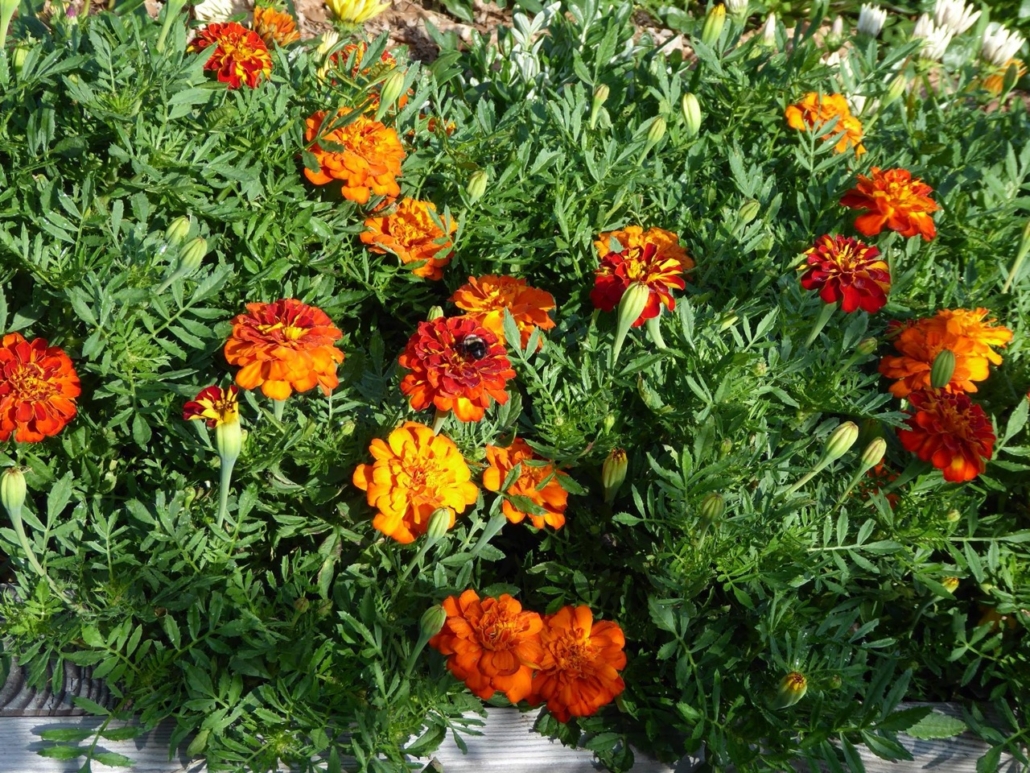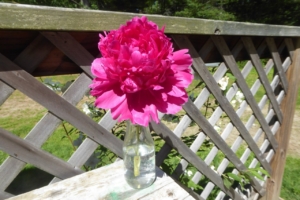MAINE-LY GARDENING: Annuals, biennials, perennials, oh my!
 by Jude Hsiang
by Jude Hsiang
Terms for plants used by growers and botanists can be confusing. If a plant is labeled “annual” we might think that it will return every year like an annual canoe race. But annual plants live for only one growing season. They grow from seed, flower, form new seeds, then die. Those new seeds will germinate and become next year’s plants if they are lucky enough to drop into a place with the right conditions and the weather is favorable.
Here in Central Maine, the little plants we buy at garden centers and other shops, whether flowers like marigolds, or vegetables like tomatoes, will be killed by the first heavy frost. But they often grow well enough through the warmer months to develop seeds.
Many gardeners collect and save seeds of annuals by keeping them dry and cool to sow for the following year. (Note: seeds from hybrid plants are often not like the parent plant.) With space to start the new seeds in the right conditions you can save money that would have been spent on buying seeds year after year. The right conditions vary for different plants. Some may require a period of very cold temperature called stratification. Some very tiny seeds must be placed on top of the planting mix as they will only germinate with light and warmth. Researching the needs of any seeds, from annual flowers to cactus to trees, will reward you with the satisfaction of seeing the baby plants grow under your watchful gaze.
A garden designer friend tells of seeing T-shirts saying, “Friends don’t let friends buy annuals.” She disagrees, because even though annuals like begonias and petunias only live for one season, they are especially useful to fill in spots between other plants that will eventually grow quite large. You can experiment with color by trying different annuals to see if their color will fit in with the long-range garden plan.
Biennial plants like foxgloves and hollyhocks live for two years but only produce roots, stems, and leaves in their first season. They die down to the ground then reappear the following spring when they produce their flowers and seeds.
After this display, biennials die, but often self-seed in the garden. Many of these seeds need a cold spell and will go on to enhance the garden for many years through their succeeding generations.
Perennial plants often become the mainstays of flower gardens. They are more expensive to purchase because they take several years to grow from tiny seedlings to a size that assures the gardener that they are large and healthy enough to transplant into the garden. Peonies, hostas, and irises are a few of the many perennial plants that will live for years, even decades. Eventually, they can become so large that they crowd other plants. That’s a bonus because you can divide them into several smaller clumps to plant in another part of the garden or share them with friends. When adding perennials to your garden learn how to divide them and whether it’s done in spring or fall depending on the species.
Members of garden clubs and other groups often share plants from their home gardens through plant swaps or fundraising sales. Look for these events in May and June for a great way to find beautiful new plants for your garden at lower cost while supporting a favorite cause.
© Judith Chute Hsiang
Jude Hsiang Is a retired Extension Master Gardener instructor and member of the China Community Garden.
Responsible journalism is hard work!
It is also expensive!
If you enjoy reading The Town Line and the good news we bring you each week, would you consider a donation to help us continue the work we’re doing?
The Town Line is a 501(c)(3) nonprofit private foundation, and all donations are tax deductible under the Internal Revenue Service code.
To help, please visit our online donation page or mail a check payable to The Town Line, PO Box 89, South China, ME 04358. Your contribution is appreciated!




Leave a Reply
Want to join the discussion?Feel free to contribute!